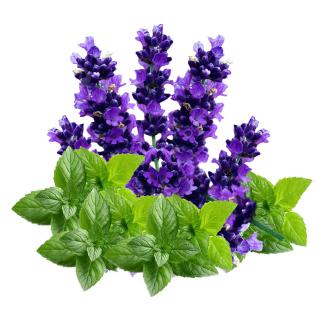
Quitting smoking is one of the most impactful decisions a person can make to improve their health and overall quality of life. Smoking is a leading cause of preventable death worldwide, contributing to various life-threatening illnesses such as cancer, heart disease, stroke, and respiratory disorders. Despite the challenge posed by nicotine addiction, there are several successful methods that can help individuals stop smoking for good. These methods often involve a combination of behavioral changes, psychological support, and sometimes medications. Moreover, alternative medicine can play a supportive role in managing cravings and withdrawal symptoms during the quitting process.
This detailed guide will cover the most effective ways to quit smoking, the reasons why quitting is crucial, and how alternative medicine can support smoking cessation efforts.
Why Should You Quit Smoking?
1. Health Benefits of Quitting Smoking
The health benefits of quitting smoking begin almost immediately and continue to grow over time. Tobacco smoke contains thousands of harmful chemicals, including more than 70 known carcinogens (cancer-causing agents). When you quit smoking, you dramatically reduce your risk of serious illnesses and improve your overall health.
Cardiovascular Health: Smoking is a major risk factor for heart disease and stroke. It damages the blood vessels, increases blood pressure, and contributes to the formation of blood clots, all of which can lead to a heart attack or stroke. After just 20 minutes of quitting, your heart rate and blood pressure start to drop. Within 12 hours, the carbon monoxide level in your blood returns to normal, allowing your heart and other organs to receive more oxygen. After one year of being smoke-free, the risk of coronary heart disease is cut in half.
Lung Function and Respiratory Health: Smoking is a leading cause of chronic obstructive pulmonary disease (COPD), which includes conditions such as chronic bronchitis and emphysema. These diseases cause long-term breathing difficulties and reduced lung function. After quitting, lung function gradually improves, and individuals find it easier to breathe. Within a few weeks of quitting, people often experience less coughing and shortness of breath. Quitting smoking also significantly lowers the risk of lung cancer, which is the deadliest form of cancer linked to smoking.
Reduced Cancer Risk: Smoking is responsible for 30% of all cancer deaths and is a major cause of cancers of the lung, throat, mouth, esophagus, pancreas, bladder, and cervix. By quitting smoking, you reduce your risk of these cancers. For instance, 10 years after quitting, your risk of dying from lung cancer is about half that of a current smoker, and the risk continues to decline the longer you stay smoke-free.
Improved Immune System: Smoking weakens the immune system, making the body more susceptible to infections and illnesses. When you quit smoking, your immune system begins to recover, making it easier for your body to fight off infections and heal more quickly from injuries.
2. Psychological and Emotional Benefits
Beyond the physical health benefits, quitting smoking can also have profound psychological and emotional effects. Nicotine addiction affects the brain’s reward system, leading to cycles of craving and withdrawal that contribute to feelings of stress, anxiety, and depression.
Reduced Anxiety and Stress: Many smokers believe that smoking helps them relax, but in reality, nicotine addiction increases anxiety and stress over time. The brief sense of relief that smoking provides is only temporary and is followed by withdrawal symptoms that can cause increased irritability and anxiety. Once you quit, your body and brain gradually adjust to life without nicotine, and studies have shown that people who quit smoking report lower levels of stress and anxiety in the long run.
Improved Mood: Quitting smoking has been linked to improvements in mood and a reduction in depressive symptoms. Nicotine disrupts the brain's chemical balance, contributing to mood disorders. As your brain adjusts to functioning without nicotine, the levels of dopamine and serotonin (chemicals that regulate mood) normalize, leading to better emotional well-being.
Enhanced Self-Esteem: Successfully quitting smoking is a significant personal achievement. It can boost self-esteem and confidence, as overcoming nicotine addiction is a major challenge. The sense of control and empowerment that comes with quitting can positively impact other areas of your life as well.
3. Improved Quality of Life
Better Physical Endurance and Energy: Smoking limits the body’s ability to circulate oxygen and nutrients efficiently, which affects physical endurance and energy levels. After quitting, blood circulation improves, and individuals often experience increased energy and physical stamina. Activities like walking, running, and exercising become easier and more enjoyable.
Enhanced Sense of Taste and Smell: Smoking dulls the senses of taste and smell. Within a few days of quitting, many former smokers notice that food tastes better, and their sense of smell becomes more acute. This improved sensory perception can lead to greater enjoyment of food and the environment.
Better Sleep Quality: Smoking affects the body's natural sleep patterns by disrupting neurotransmitter levels and increasing the risk of sleep disorders such as insomnia. Once you quit smoking, your sleep quality is likely to improve as your body begins to heal and restore its natural rhythms.
Financial Savings: Smoking is an expensive habit. The cost of cigarettes, combined with the long-term financial burden of healthcare expenses related to smoking-related illnesses, can add up significantly over time. By quitting smoking, you can save a substantial amount of money that can be redirected toward healthier pursuits or investments in your future.
4. Protecting Loved Ones from Secondhand Smoke
Secondhand smoke is harmful to non-smokers, especially children, pregnant women, and individuals with pre-existing health conditions. By quitting smoking, you protect your loved ones from the dangers of secondhand smoke, which includes an increased risk of respiratory infections, asthma, and even sudden infant death syndrome (SIDS) in babies. Protecting your family from exposure to tobacco smoke is one of the most compelling reasons to quit smoking.
The Most Successful Ways to Quit Smoking
There is no single "best" way to quit smoking that works for everyone, as each person’s experience with smoking and addiction is unique. However, research has shown that combining behavioral therapy, pharmacological treatments, and support systems offers the best chance of successfully quitting smoking. Let’s explore some of the most successful methods:
1. Behavioral Therapy
Behavioral therapy is an essential component of smoking cessation programs. It focuses on identifying and changing the habits and thought patterns that contribute to smoking. There are several approaches to behavioral therapy, each designed to help individuals manage cravings, avoid triggers, and cope with withdrawal symptoms.
Cognitive Behavioral Therapy (CBT): CBT is one of the most effective forms of behavioral therapy for smoking cessation. It helps smokers recognize and change the negative thought patterns and behaviors that lead to smoking. CBT teaches individuals how to replace smoking with healthier activities, such as exercise or mindfulness techniques. Studies have shown that smokers who receive CBT are more likely to quit successfully and stay smoke-free compared to those who try to quit on their own.
Motivational Interviewing (MI): MI is a counseling technique that helps individuals resolve their ambivalence about quitting smoking. It focuses on enhancing a person's motivation to change by exploring their reasons for quitting and building their confidence. MI is particularly useful for individuals who may not feel fully ready to quit but are considering it. It helps them move toward a commitment to quitting smoking by focusing on their personal goals and values.
Quitlines and Online Support: Quitlines are telephone-based counseling services that provide support and advice for individuals trying to quit smoking. These services are often staffed by trained professionals who can offer personalized counseling, resources, and encouragement. Online support groups and forums also provide a sense of community and accountability, which can be crucial during the quitting process.
2. Pharmacological Treatments
Medications can significantly increase the likelihood of quitting smoking by reducing withdrawal symptoms and nicotine cravings. The most common pharmacological treatments include nicotine replacement therapy (NRT), varenicline (Chantix), and bupropion (Zyban).
Nicotine Replacement Therapy (NRT): NRT helps alleviate withdrawal symptoms by providing the body with a small, controlled dose of nicotine without the harmful chemicals found in tobacco smoke. NRT is available in various forms, including nicotine patches, gum, lozenges, nasal sprays, and inhalers. Research shows that NRT can double the chances of successfully quitting smoking, especially when combined with behavioral therapy.
Varenicline (Chantix): Varenicline is a prescription medication that works by blocking nicotine receptors in the brain. This reduces the pleasurable effects of smoking and helps decrease cravings. Varenicline has been shown to be more effective than NRT or bupropion in helping smokers quit. However, it may cause side effects such as nausea, insomnia, and vivid dreams, so it should be used under medical supervision.
Bupropion (Zyban): Bupropion is an antidepressant that has been found to help people quit smoking. It works by affecting brain chemicals involved in nicotine addiction. Bupropion reduces cravings and withdrawal symptoms, making it easier for smokers to quit. It is often prescribed to individuals who also suffer from depression, as it can address both conditions simultaneously.
Combination Therapy: Studies suggest that combining pharmacological treatments can lead to higher success rates. For example, using NRT alongside varenicline or bupropion may be more effective than using one treatment alone. Smokers should consult with healthcare providers to determine the most appropriate combination of treatments based on their individual needs.
3. Cold Turkey vs. Gradual Reduction
There are two main approaches to quitting smoking: quitting "cold turkey" (stopping all at once) or gradually reducing the number of cigarettes smoked over time. Both methods have their advantages and challenges, and the choice depends on the individual’s personality, smoking habits, and level of nicotine dependence.
Cold Turkey: Quitting cold turkey involves stopping smoking abruptly without any gradual reduction in cigarette consumption. Some individuals find this method more effective because it eliminates the habit all at once. However, quitting cold turkey can be challenging for those with a strong nicotine dependence, as withdrawal symptoms may be more intense in the initial days and weeks.
Gradual Reduction: Gradually reducing cigarette consumption before quitting can be a more manageable approach for some smokers. By slowly cutting down on the number of cigarettes smoked each day, individuals can reduce their nicotine dependence over time, making the quitting process less overwhelming. This method may involve using NRT to supplement the reduction in nicotine intake or extending the intervals between smoking sessions.
4. Mindfulness and Relaxation Techniques
Smoking is often used as a coping mechanism for stress, anxiety, or emotional distress. Learning mindfulness and relaxation techniques can help individuals manage stress without resorting to cigarettes.
Mindfulness Meditation: Mindfulness involves paying attention to the present moment without judgment. It can help smokers become more aware of their cravings and triggers, allowing them to respond to these urges without acting on them. Several studies have shown that mindfulness meditation can reduce smoking-related cravings and promote long-term abstinence.
Deep Breathing and Progressive Muscle Relaxation: These relaxation techniques can help individuals cope with nicotine withdrawal symptoms and stress during the quitting process. Deep breathing exercises and progressive muscle relaxation can calm the nervous system, reduce anxiety, and provide a healthy alternative to smoking when stress levels rise.
5. Exercise and Physical Activity
Exercise is another effective strategy for quitting smoking. Physical activity not only helps reduce stress but also improves mood, increases energy levels, and promotes overall well-being.
Reducing Cravings: Research suggests that even short bouts of exercise can reduce nicotine cravings and withdrawal symptoms. Physical activity releases endorphins, the brain's "feel-good" chemicals, which can help counteract the mood changes associated with quitting smoking.
Weight Management: Many individuals are concerned about weight gain when quitting smoking. Exercise can help mitigate weight gain by increasing metabolism and burning calories. It also provides a healthy way to deal with stress and boredom, which are common triggers for smoking.
How Can Alternative Medicine Help in Quitting Smoking?
Alternative medicine can complement conventional treatments for quitting smoking by offering additional support for managing cravings, reducing withdrawal symptoms, and promoting relaxation. While alternative medicine approaches should not replace proven smoking cessation methods, they can be used in combination with behavioral therapy, medications, and support systems to enhance the chances of success.
1. Acupuncture
Acupuncture is a traditional Chinese medicine technique that involves inserting thin needles into specific points on the body to balance energy (Qi) and promote healing. Acupuncture has been used to help reduce nicotine cravings, alleviate withdrawal symptoms, and manage stress and anxiety during the quitting process.
Some studies have shown that acupuncture may be helpful in reducing the desire to smoke and improving overall well-being during smoking cessation. While the evidence is mixed, many individuals find that acupuncture provides a sense of relaxation and helps them cope with the physical and emotional challenges of quitting.
2. Hypnotherapy
Hypnotherapy is a technique that uses guided relaxation and focused attention to achieve a heightened state of awareness, known as hypnosis. During hypnotherapy, individuals may be more open to suggestions that promote healthier behaviors and reduce the desire to smoke.
Hypnotherapy for smoking cessation aims to change the subconscious thoughts and associations related to smoking, helping individuals break the habit. While the effectiveness of hypnotherapy varies from person to person, some studies suggest that it can be a useful tool for those who are motivated to quit.
3. Herbal Remedies
Certain herbal remedies are believed to help manage nicotine cravings, reduce anxiety, and promote relaxation during the quitting process. Common herbs used for smoking cessation include:
- Lobelia: Often referred to as "Indian tobacco," lobelia is believed to mimic the effects of nicotine in the body, potentially reducing cravings. However, it should be used with caution, as it can be toxic in high doses.
- St. John’s Wort: This herb is commonly used to treat mild to moderate depression. Some studies suggest that it may also help reduce withdrawal symptoms and improve mood during smoking cessation.
- Passionflower and Valerian Root: These herbs are known for their calming properties and are often used to reduce anxiety and promote relaxation. They may help manage the stress and irritability associated with quitting smoking.
It is important to consult with a healthcare provider before using herbal remedies, as some may interact with medications or have side effects.
4. Aromatherapy
Aromatherapy involves using essential oils to promote relaxation, reduce stress, and improve mood. Certain essential oils, such as lavender, chamomile, and peppermint, are known for their calming and stress-relieving properties. Inhaling these oils through a diffuser or applying them topically can help individuals cope with cravings and anxiety during the quitting process.
Aromatherapy can be used as part of a relaxation routine, such as during mindfulness meditation or deep breathing exercises, to enhance the overall sense of calm and well-being.
5. Mindfulness and Meditation
Mindfulness and meditation practices are widely used in alternative medicine to reduce stress, enhance self-awareness, and promote emotional balance. These practices can be particularly beneficial for individuals trying to quit smoking, as they help manage cravings and prevent relapse.
Mindfulness-Based Stress Reduction (MBSR): MBSR is a structured program that combines mindfulness meditation with yoga and body awareness exercises. It has been shown to reduce stress, improve emotional regulation, and increase resilience, all of which are important for overcoming nicotine addiction.
Guided Meditation: Listening to guided meditation recordings can help individuals focus on their breathing, reduce anxiety, and develop a stronger sense of control over their cravings.
Quitting smoking is a challenging but rewarding journey that requires a combination of strategies tailored to each individual's needs. The most successful way to quit smoking often involves a combination of behavioral therapy, pharmacological treatments, and alternative medicine approaches. Recognizing the profound health, psychological, social, and financial benefits of quitting smoking can provide the motivation needed to overcome nicotine addiction.
While conventional methods such as nicotine replacement therapy and behavioral counseling are highly effective, alternative medicine practices like acupuncture, hypnotherapy, and mindfulness can offer additional support. Ultimately, persistence, support, and a strong commitment to living a smoke-free life are the keys to long-term success.






